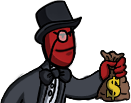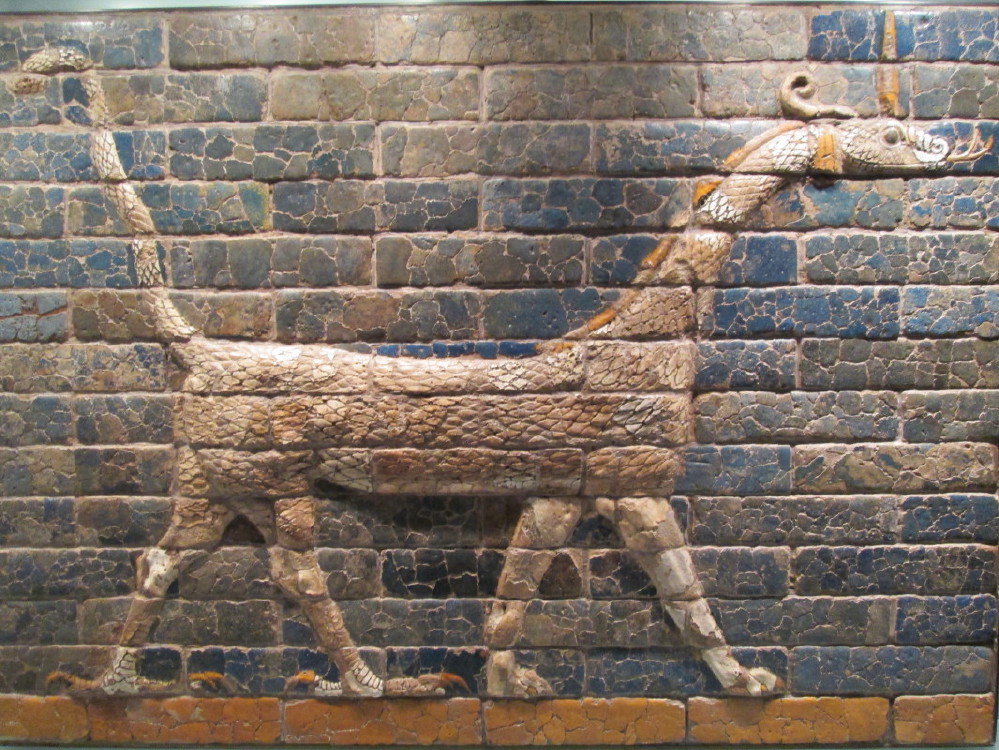- Joined
- Jan 28, 2011
- Messages
- 99,621















Tags: Fallen Gods; Mark Yohalem; Wormwood Studios
We've known since August 2014 that Mark "MRY" Yohalem's Wormwood Studios, developers of 2012's PS:T-inspired adventure gaming classic Primordia, have been quietly working on their next game, an RPG of sorts by the name of Fallen Gods. Last night, Mark posted a new update on Wormwood's site, an end-of-year summary that properly reveals Fallen Gods for the first time. The update also has information about two other upcoming games from the Primordia team - a cyberpunkish-looking platformer called Until I Have You by programmer James Spanos, and a new Primordia-esque adventure game called Trenchmouth by artist Victor Pflug. But RPGs come first, so here's an excerpt from the Fallen Gods announcement:
We've known since August 2014 that Mark "MRY" Yohalem's Wormwood Studios, developers of 2012's PS:T-inspired adventure gaming classic Primordia, have been quietly working on their next game, an RPG of sorts by the name of Fallen Gods. Last night, Mark posted a new update on Wormwood's site, an end-of-year summary that properly reveals Fallen Gods for the first time. The update also has information about two other upcoming games from the Primordia team - a cyberpunkish-looking platformer called Until I Have You by programmer James Spanos, and a new Primordia-esque adventure game called Trenchmouth by artist Victor Pflug. But RPGs come first, so here's an excerpt from the Fallen Gods announcement:
Finally, Fallen Gods continues creeping forward. I'm hopeful that as Torment work wraps up in early 2016, and I'm able to give full attention to FG, the pace will pick up. In the meanwhile, let me tell you a little bit about the game.
Its roots lie in two old, non-computer games from my childhood: Barbarian Prince and Lone Wolf. I rediscovered these back in around 2006, and I was simply blown away at the things they accomplished without the assistance of a computer. I loved the ways in which BP created this reactive, complicated game with very simple tools. And I loved that choices and skills in Lone Wolf felt meaningful. I was coming off having played a lot of computer RPGs where improving a stat, gaining a feat, picking an option really did not feel significant at all. In Lone Wolf, by contrast, each of the special abilities just felt . . . well, special. And you got to use them in these great ways, with great frequency.
I then launched into a massive project to hybridize these games with Weird Worlds, a procedural "coffee break" game. The game was called Star Captain. I read about 100 space opera novels, watched hours of space opera TV and movies, studied a ton of space opera P&P games, and churned out a 250-page design document. I was very close to signing a contract with S2 Games to co-develop the title (at the time, I was doing writing for them), but it fell through, and I switched gears to make Primordia. Then I discovered that Mass Effect had largely preempted my narrative concept (cannibalizing the space opera canon) and a slew of games, most prominently FTL, had seized on the same gameplay structure. Well, shit.
Around the time Cloudscape died, I was reading Beowulf to my kids and The Long Ships to myself, and fell in love with Anglo-Saxon language and Norse fatalism. I embarked on a long reading journey, which took me through most of the Icelandic sagas, the eddas, the Tain, the Exeter Book, and lots of history books. So immersed, I realized that I could take Star Captain back closer to its Barbarian Prince roots, and thus Fallen Gods was born.
The basic gist of the game is that the player is one of the eponymous "Fallen Gods," who must win his way back to the Cloudlands -- our Asgard -- by hook or crook. I don't want to spoil too much at this point, but basically it is a bleak game that blends Norse mythology and Icelandic folklore (and European folklore more generally) with a rather bleak worldview that fell upon me when reading a series of books about the aftermath of various revolutions (Russian, French, Bolivarian, and anti-colonial wars of liberation in Africa). The current pantheon of Fallen Gods successfully overthrew the indifferent, and even cruel, primordial gods who ruled before them (a blend of titans and animistic prehistorical gods). Despite this signal and perhaps noble victory, the new gods, led by Orm the Trickster, have proven fairly inept as divinities and catastrophe has befallen the world: political, ecological (I was also reading, among other things,The Earth Without Us and The Sixth Extinction), and spiritual.
Anyway, the "hero" -- more anti-hero, or let us just say, player character -- has a fixed number of days to make his way back to the Cloudlands, lest he become mortal forever. The game plays out through three systems: the world map (depicted above), events (which are still coming together from an interface standpoint), and combat (which is still in the mockup stage).
See the full update for an early look at Fallen Gods' visuals, including the aforementioned combat and event sequences. There's also a bit of information about Mark's contribution to Torment: Tides of Numenera.Its roots lie in two old, non-computer games from my childhood: Barbarian Prince and Lone Wolf. I rediscovered these back in around 2006, and I was simply blown away at the things they accomplished without the assistance of a computer. I loved the ways in which BP created this reactive, complicated game with very simple tools. And I loved that choices and skills in Lone Wolf felt meaningful. I was coming off having played a lot of computer RPGs where improving a stat, gaining a feat, picking an option really did not feel significant at all. In Lone Wolf, by contrast, each of the special abilities just felt . . . well, special. And you got to use them in these great ways, with great frequency.
I then launched into a massive project to hybridize these games with Weird Worlds, a procedural "coffee break" game. The game was called Star Captain. I read about 100 space opera novels, watched hours of space opera TV and movies, studied a ton of space opera P&P games, and churned out a 250-page design document. I was very close to signing a contract with S2 Games to co-develop the title (at the time, I was doing writing for them), but it fell through, and I switched gears to make Primordia. Then I discovered that Mass Effect had largely preempted my narrative concept (cannibalizing the space opera canon) and a slew of games, most prominently FTL, had seized on the same gameplay structure. Well, shit.
Around the time Cloudscape died, I was reading Beowulf to my kids and The Long Ships to myself, and fell in love with Anglo-Saxon language and Norse fatalism. I embarked on a long reading journey, which took me through most of the Icelandic sagas, the eddas, the Tain, the Exeter Book, and lots of history books. So immersed, I realized that I could take Star Captain back closer to its Barbarian Prince roots, and thus Fallen Gods was born.
The basic gist of the game is that the player is one of the eponymous "Fallen Gods," who must win his way back to the Cloudlands -- our Asgard -- by hook or crook. I don't want to spoil too much at this point, but basically it is a bleak game that blends Norse mythology and Icelandic folklore (and European folklore more generally) with a rather bleak worldview that fell upon me when reading a series of books about the aftermath of various revolutions (Russian, French, Bolivarian, and anti-colonial wars of liberation in Africa). The current pantheon of Fallen Gods successfully overthrew the indifferent, and even cruel, primordial gods who ruled before them (a blend of titans and animistic prehistorical gods). Despite this signal and perhaps noble victory, the new gods, led by Orm the Trickster, have proven fairly inept as divinities and catastrophe has befallen the world: political, ecological (I was also reading, among other things,The Earth Without Us and The Sixth Extinction), and spiritual.
Anyway, the "hero" -- more anti-hero, or let us just say, player character -- has a fixed number of days to make his way back to the Cloudlands, lest he become mortal forever. The game plays out through three systems: the world map (depicted above), events (which are still coming together from an interface standpoint), and combat (which is still in the mockup stage).








![Glory to Codexia! [2012] Codex 2012](/forums/smiles/campaign_tags/campaign_slushfund2012.png)













